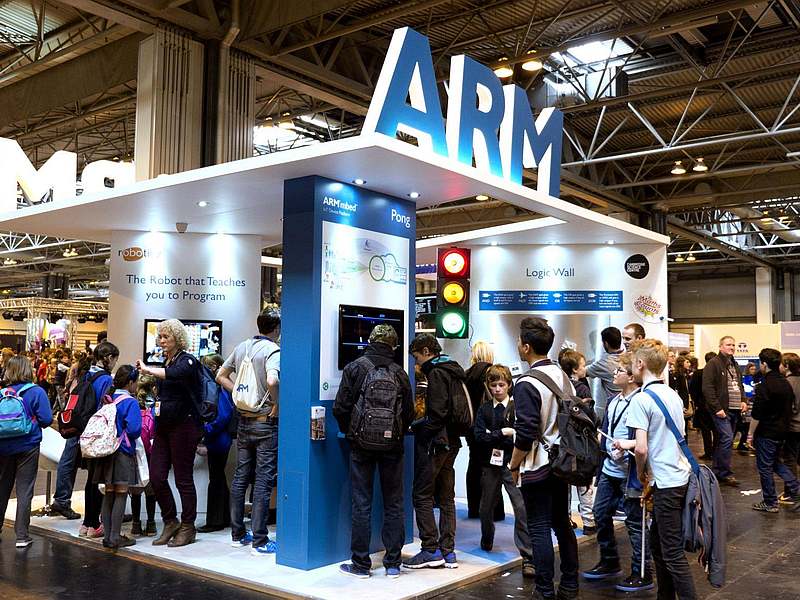- Home
- Science
- Science News
- ARM to Develop Brain Implant Chips to Help the Paralysed Control Their Limbs Again
ARM to Develop Brain Implant Chips to Help the Paralysed Control Their Limbs Again

ARM has announced that it is working on processors small enough to be embedded into the human brain, to help people overcome paralysis, counteract the effects of strokes, and control prosthetic limbs with their thoughts. The UK-based technology firm will be partnering with the University of Washington's Center for Sensorimotor Neural Engineering to develop ways to integrate its technology into the human brain, which it describes as is one of the final frontiers of technological innovation.
The agreement between ARM and the university is meant to advance the study of of bi-directional brain-computer interfaces. Research will involve understanding how the brain processes impulses and turns them into commands to control muscles. Neural signals have to be decoded, digitised and processed, before the output is fed into electronic stimulators embedded into a patient's spinal cord. Information then has to be sent the other way, to allow the brain to receive the feeling of what their hands are touching, for example. Scientists hope that they can eventually learn to "reprogram" brains to heal themselves and restore functions to a greater extent than they can on their own.
An SoC designed for such purposes would have to be extremely tiny and power efficient, generating very little heat. ARM will be basing its efforts on the Cortex-M0, its smallest current processor. There is no timeline for the project and no projection of when any such product might be developed, much less when it might pass clinical trials and become ready for widespread use.
Scientists hope to develop technology that can help people feel and move again after suffering from paralysis, spinal injuries, or neurodegenerative conditions such as Alzheimer's disease and Parkinson's disease.
For the latest tech news and reviews, follow Gadgets 360 on X, Facebook, WhatsApp, Threads and Google News. For the latest videos on gadgets and tech, subscribe to our YouTube channel. If you want to know everything about top influencers, follow our in-house Who'sThat360 on Instagram and YouTube.
Related Stories
- Galaxy S24 Series
- MWC 2024
- Apple Vision Pro
- Oneplus 12
- iPhone 14
- Apple iPhone 15
- OnePlus Nord CE 3 Lite 5G
- iPhone 13
- Xiaomi 14 Pro
- Oppo Find N3
- Tecno Spark Go (2023)
- Realme V30
- Best Phones Under 25000
- Samsung Galaxy S24 Series
- Cryptocurrency
- iQoo 12
- Samsung Galaxy S24 Ultra
- Giottus
- Samsung Galaxy Z Flip 5
- Apple 'Scary Fast'
- Housefull 5
- GoPro Hero 12 Black Review
- Invincible Season 2
- JioGlass
- HD Ready TV
- Laptop Under 50000
- Smartwatch Under 10000
- Latest Mobile Phones
- Compare Phones
- Motorola Edge 50 Ultra
- Leica Leitz Phone 3
- Moto G64 5G
- Moto G04s
- iQOO Z9 Turbo
- Vivo T3x 5G
- Realme P1 5G
- Realme P1 Pro 5G
- Asus ZenBook Duo 2024 (UX8406)
- Dell Inspiron 14 Plus
- Realme Pad 2 Wi-Fi
- Redmi Pad Pro
- Cult Shock X
- Fire-Boltt Oracle
- LG 65-inch 4K Ultra HD Smart LED TV 65UR7500PSC
- Xiaomi 32 Inch LED HD Ready Smart TV (L32M6-RA-L32M7-RA)
- Sony PlayStation 5 Slim Digital Edition
- Sony PlayStation 5 Slim
- Hitachi 1 Ton 5 Star Inverter Split AC (RAS.V512PCAISH)
- Panasonic 1.5 Ton 3 Star Inverter Split AC (CS/CU-EU18AKY3)

















